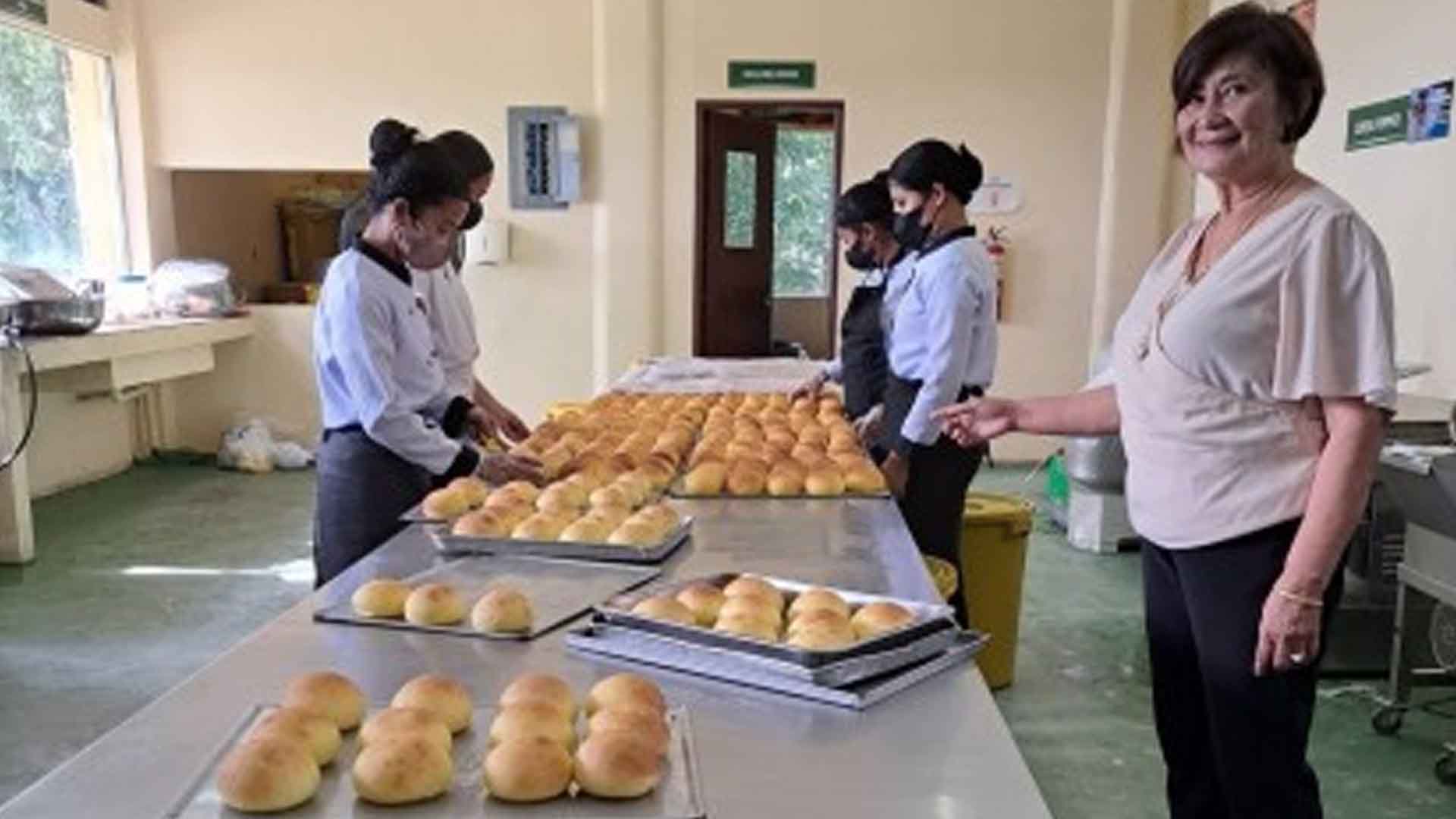Malnourished kids in five towns of Antique province are being fed with Vitamin A-packed nutribun prepared by the University of Antique (UA) in its main campus in Sibalom.
The feeding program, which started on October 3 and will end December 28, provides daily nutribun supplies to 30 beneficiary children per town, with a maximum age of four years
Dr. Mary Anne Jornada Raymaro, director of UA Extension Services Unit, said in an interview Monday that the program is in partnership with the Department of Science and Technology – Food and Nutrition Research Institute (DOST-FNRI).
“The towns that are beneficiaries of the program are Belison, Sibalom, San Remigio, Valderrama, and Hamtic,” Raymaro said.
The five towns were identified through the help of the Antique Provincial Nutrition Council.
The DOST-FNRI conducted trainings with the UA Extension Services Unit staff on September 7 on how to bake the nutribun, enhanced with squash variants.
UA, through its president Dr. Pablo Crespo Jr., allocated PHP78,000 so that it could provide free nutribun, which cost PHP18 each.
Before the start of the program, the beneficiaries were weighed so that there will be a baseline to find out the nutritional improvement after the program.
The nutribun has a shelf life of three days but the UA Extension Services Unit wants freshly baked nutribun delivered daily.
Raymaro said they are also preparing to introduce the nutribun to other local government units and to the market.
The nutrition-packed bread was distributed during elementary school feeding programs in the Philippines in the 1970s to combat child malnutrition.
It was first conceptualized by the United States Agency for International Development’s Food for Peace program. (PNA)





